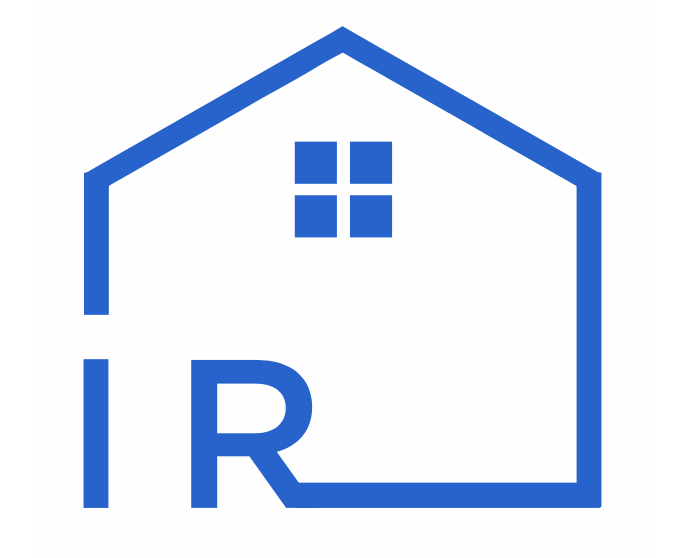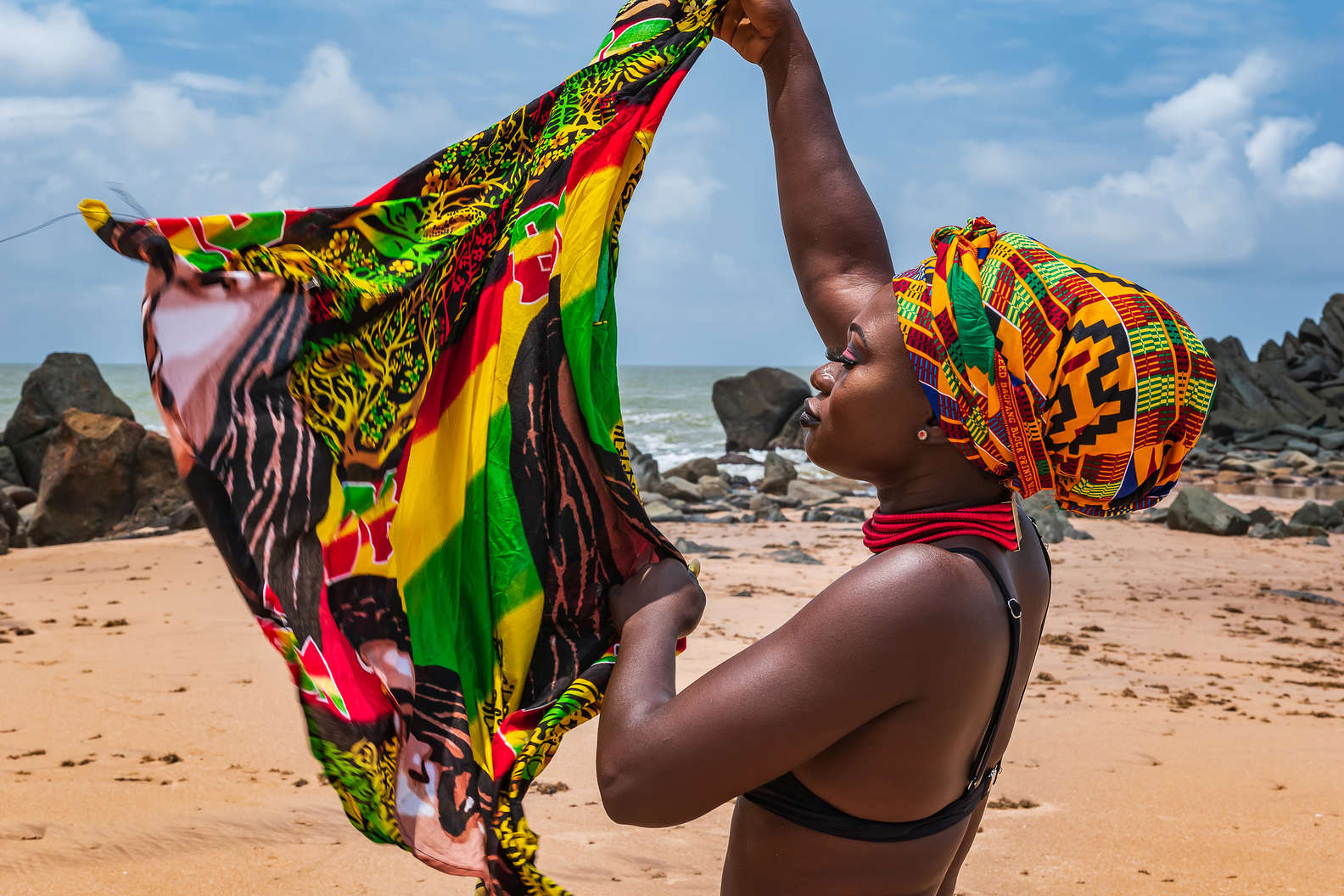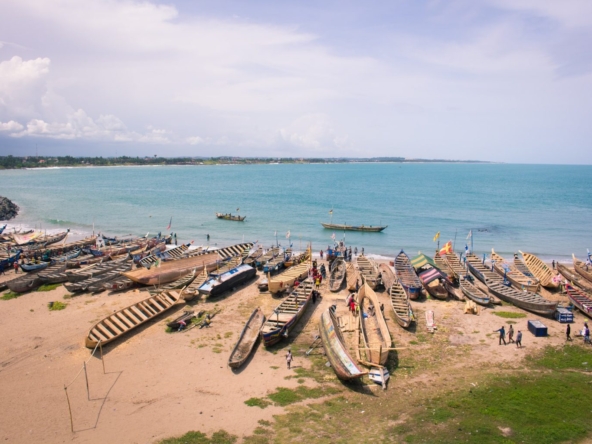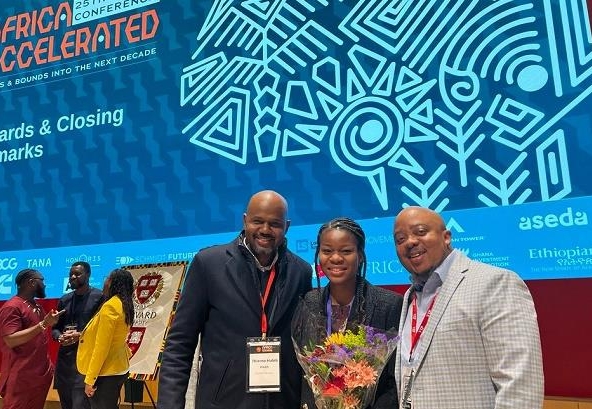With its portrayal of the advanced African society of Wakanda, Black Panther became a global phenomenon in 2018, capturing attention and imagination across the Black Diaspora. The film tapped into the ideal of an African paradise where progress was everywhere and racism didn’t exist.
In 2019, celebrations and events dubbed the Year of Return encouraged Black diasporans to visit Ghana. A year later—in the wake of George Floyd’s killing by police, worldwide protests, and an emboldening of racism and oppression—the spotlight shifted to Ghana once again, this time as a North Star for the national exodus of Black Americans known as Blaxit.
In Ghana, many Black expats and repatriates (people who call Ghana their homeland) see a real-life Wakanda: a place with an expanding economy, plenty of business opportunities, and—most essentially—a friendly, welcoming society. And if you’re a member of the Black Diaspora, living here is easier than you might imagine.
Ghana boasts the fifth-fastest growing economy on the African continent, and the fact that English is its main language smooths the transition process for expats. More crucially, the country adopted a Right of Abode law, which offers members of the Black Diaspora the legal right to live in the country, creating unprecedented access for many.
New York native Muhammida El Muhajir had traveled all over the world, but it wasn’t until she visited Ghana that she felt like she was truly accepted.
“I didn’t feel out of place. It was a place where I could be Black and excellent and it wasn’t an anomaly,” says El Muhajir, who owns a digital marketing and communications agency.
The entrepreneur moved to Ghana in 2014 for a tech startup fellowship and has quickly assimilated into the easygoing society.
“I feel like I have returned to my ancestral homeland. I have never taken a DNA test, but I feel connected to the land and people,” she says. “I also feel like I am restoring my ancestral memory. Just by being here, I am restoring the culture, language, and traditions that were stripped from Africans during the transatlantic slave trade.”
Reconnecting to ancestral roots is an important draw for many expats, but Ghana’s growing development of sustainable lifestyles also plays a factor. Organic markets, recycling programs, and vegan restaurants have been popping up in the capital of Accra and smaller towns like Cape Coast.
Living off-the-grid and close to nature was a highlight for Victor Beausoleil, who moved his family of six from Toronto to Ghana last year.
“When we decided to repatriate, we invested three years of preliminary research on Nigeria, Rwanda, and Ghana,” says the author and entrepreneur. “Ghana was our choice based on relationships we had established in various regions, the emerging economy, the recent stability of the cedi (the Ghanian dollar), and our long-term goals for agricultural development, solar sovereignty, and sustainable living.”
El Muhajir experienced an easy relocation transition as a renter. She lives in a roomy two-bedroom apartment in Accra’s East Legon neighborhood, with lots of amenities like a nearby mall and restaurants.
Choosing the right home is important because Ghana’s infrastructure is not particularly strong. Power and water outages are common so being located in an area with well-established power lines and wells help. Most government and legal processes also require patience or familiarity with the “dash” (bribery) system.
Although rents are affordable—ranging from $140 a month for an unfurnished one bedroom to $700 for a three bedroom—renters are required to pay a year’s rent in advance, which can make it cheaper in the long run to buy land and build a house. A 100 x150 ft. plot of land in Accra costs around $5,000-$15,000, and a ranch house can be built for as little as $30,000.
Beausoleil lives in a sprawling seven-bedroom house surrounded by palm trees in the central region of Accra, where he homeschools his four children with his wife.
“Lease a property until you find the region best suited for you,” he recommends. “Utilize an accredited real estate agent and research the lands and commission process. Clay homes and sandbag homes are very economical.”
Navigating Ghana’s visa system is relatively simple, and employers in Ghana facilitate the required work visa and residence permits. The oil, mining, and agricultural industries are the top employers, although healthcare, education, and IT jobs are also available. It’s important to note that Ghana’s unemployment rate is 4.51%, which is relatively average but there is an emphasis on hiring Ghanaians for most positions, so it’s easier for expats to create their own jobs.
In terms of citizenship, you need to live in Ghana for 5-7 years before you’re eligible to apply and you have to show proof of contributing to the economy. Both El Muhajir and Beausoleil plan on applying for citizenship but they have already seen the benefits of living in Ghana.
“Our quality of life was sustainable in Toronto but we are thriving in Ghana, there is no comparison,” says Beausoleil. “Our entire family has adjusted beautifully.”
El Muhajir agrees.
“I love the fact that I’m living in an all-Black environment. I actually fit into the standards of beauty, excellence, and achievement,” she says. “I never realized how horrible it is to be treated as a second-class citizen until I moved to Ghana and was no longer second class. I can never go back.”
Source: https://www.thrillist.com/travel/nation/living-in-ghana-guide




